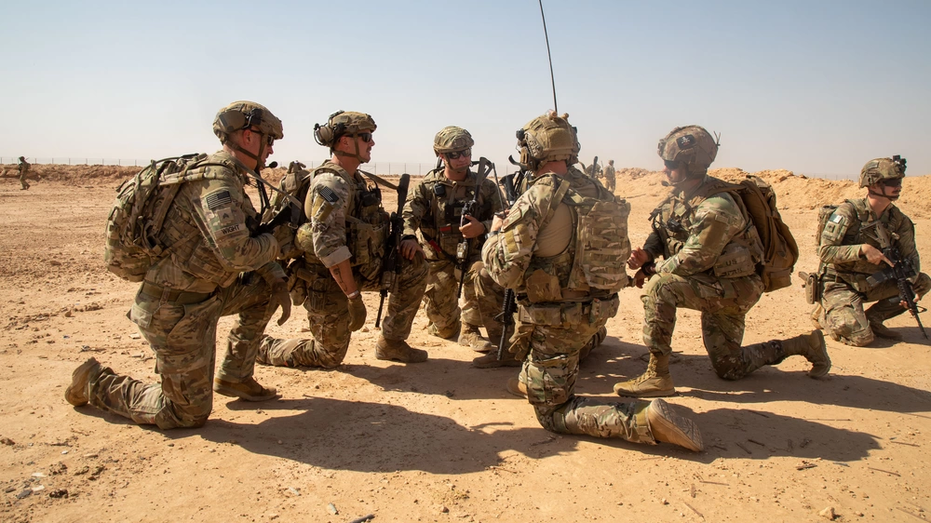The House of Representatives is set to vote on a major piece of legislation on Friday outlining the U.S.’s defense policies for the next fiscal year.
The National Defense Authorization Act (NDAA) is an annual must-pass bill that lays out certain priorities for the Pentagon and Department of Energy. This year’s bill authorizes $895.2 billion in military spending, a $9 billion increase from fiscal 2024.
A main focus of this year’s NDAA is the improvement of quality of life for service members, which members of the Armed Services Committee found to be sorely lacking during a monthslong investigation into the issue.
It also includes a provision to block Defense Secretary Lloyd Austin from establishing a diversity, equity and inclusion (DEI)-related committee or group for Pentagon-funded schools.
MARATHON IN EVERY STATE: NAVY VET AND FORMER NYPD OFFICER RUNS ACROSS US TO HELP DESERVING NONPROFIT
On the hardware front, the NDAA would mandate the establishment of a Drone Corps within the Army to help the military keep up with the rapid advancement of technological warfare.
But the effort to boost quality of life for military families is the cornerstone of this year’s bill, as Reps. Don Bacon, R-Neb., and Chrissy Houlahan, D-Pa., told Fox News Digital this week.
“We heard from spouses … [in] high-cost areas that they’re having to go to food banks,” Bacon told Fox News Digital of the committee’s months of interviews with people whose partners are in the military.
He said military parents stationed in high-cost-of-living areas like Washington, D.C., and parts of California often have to pay even more to live in areas that are safe and have good schools.
MARATHON IN EVERY STATE: NAVY VET AND FORMER NYPD OFFICER RUNS ACROSS US TO HELP DESERVING NONPROFIT
“So, then these folks are doing this to sacrifice for their family, but they’re sacrificing putting food on the table,” Bacon said. “Tons of families are struggling.”
Houlahan said, “A very significant pay raise, particularly for our young enlisted, I think is really life-changing, and I hope will also be motivating for people to enlist and also to stay.”
She said of the other issues the bill seeks to address for military members, “Maybe you have a family, maybe you have a spouse, maybe you are concerned about issues like child care, you want to make sure there’s a good roof over your head that is quality construction. You want to make sure that you can afford the housing in your community – all of those kinds of things.”
The bill would authorize a 19.5% pay raise for junior enlisted service members and raise pay for all others by 4.5%.
It would also authorize funds for new military housing construction and renovating existing units.
CONGRESS FEELING HEAT FROM GROUPS DEMANDING BAN ON CONTRACTS WITH CHINESE FIRM TAKING AMERICANS’ DNA
“People working at fast-food restaurants are making more than our junior enlisted,” Bacon said.
However, both expressed wariness at the breadth of amendments that were offered to the bill in the last several days over concerns that amendments on sensitive culture war-related issues threaten the bill’s bipartisan success.
“I’m not worried, but I’m frustrated … we’re going to go through the same exact dance that we went through last year,” Houlahan said. ‘We don’t have a ton of time. Why we would spin the same scenario that we saw last year over again when we resolved this is nonsensical to me.”
Bacon said, “They’re going to put in their own poison pills with no intention to vote for it anyway. And then we lose Democratic support, which you’ve got to have. But in the end, by the time we get done with the Senate, we’ll have a good bill.”
























